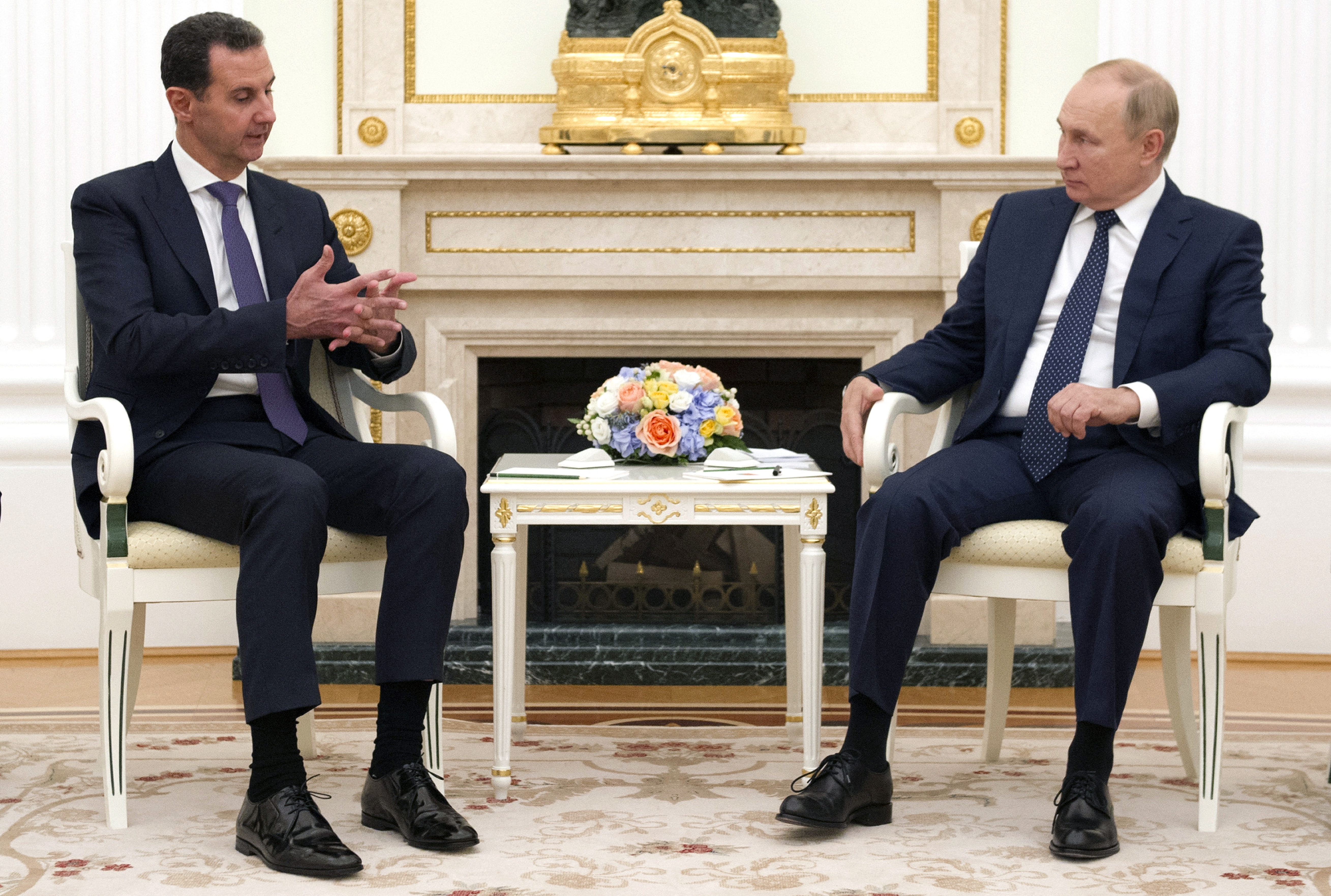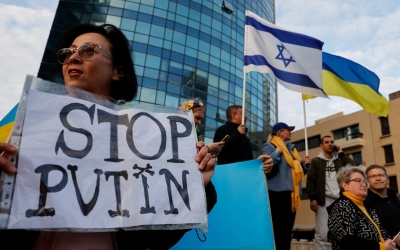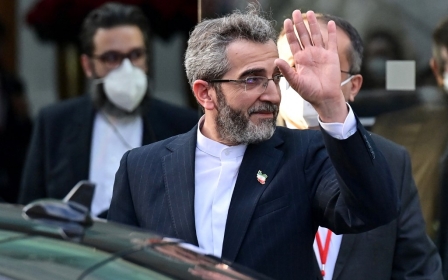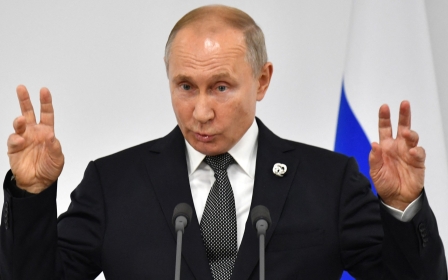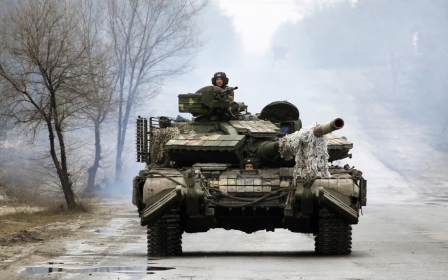Russia-Ukraine war casts new shadow over Syria
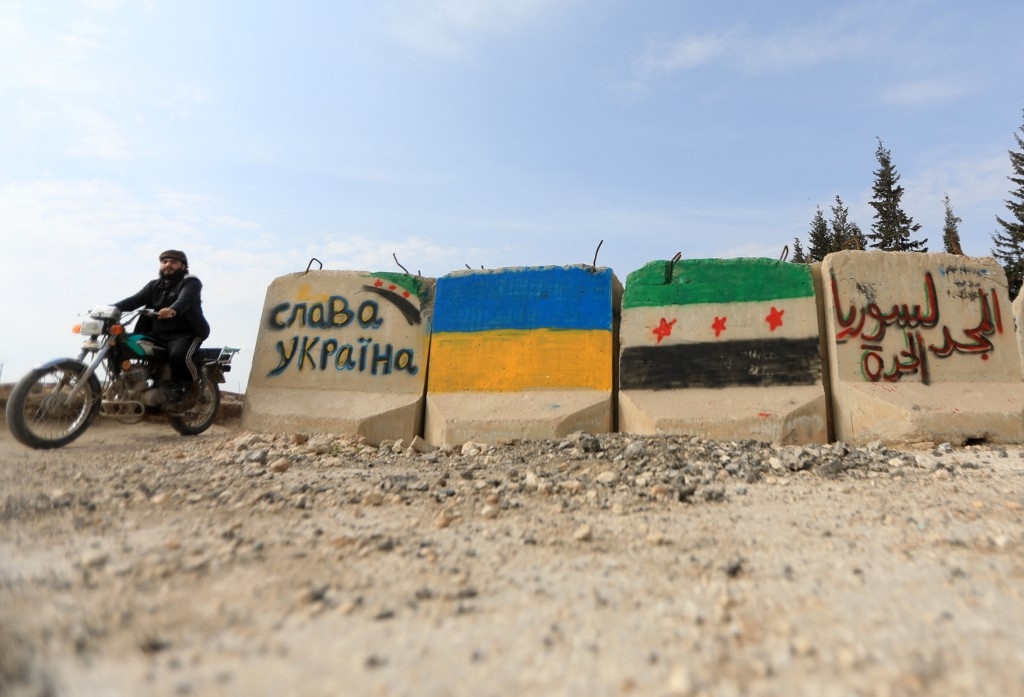
The Ukraine and Syria conflicts have long been intertwined. One of Russian President Vladimir Putin’s motivations for intervening in Syria in the first place was to break out of the diplomatic isolation he faced after annexing Crimea in 2014.
The success of this action, and the lack of western pushback for subsequent atrocities, have led some commentators to argue that the February invasion was emboldened by western passivity over Syria. Today, as Ukraine suffers, the overlap is evident once more as Russian military tactics from Syria are now at the forefront of the Ukraine operation.
Given the conflict's global nature and the number of key players in Syria impacted by this new war, it seems unlikely it will avoid the fallout
Clearly, the Syria war has impacted Ukraine, but how might the current crisis impact the situation in Syria? It is a fair assumption that the crisis will not be resolved soon, meaning it will continue to dominate global media and diplomatic attention. Syria has already been falling down the global priority list and its obscurity will likely continue, despite its civil war being far from over.
Syrian President Bashar al-Assad’s continued domestic repression, ongoing economic suffering, and the sporadic fighting between different extremist factions will get less and less global interest as, like Iraq and Afghanistan before it, Syria becomes yesterday’s war. The ongoing suffering in Yemen and Libya could similarly slip further from focus.
This is arguably most significant for the 5.7 million registered Syrian refugees. Already, they were suffering cuts in funding from international donors such as the UK, but the emergence of a new refugee crisis from Ukraine will draw more money and support away from the Middle East and towards Eastern Europe. There are sadly countless examples in history of refugees being forgotten once the conflict they were fleeing drops from public interest, often having miserable consequences for the refugees and the countries hosting them.
New MEE newsletter: Jerusalem Dispatch
Sign up to get the latest insights and analysis on Israel-Palestine, alongside Turkey Unpacked and other MEE newsletters
Drained military resources
Beyond a loss of attention, the geopolitics of Syria’s war could be significantly impacted by the fallout from the Russia-Ukraine war. At the most extreme, if this leads to Putin’s fall in Moscow, it could radically alter Russia’s presence in Syria. Yet, even less dramatic consequences could have an impact. A long, gruelling war that drains Russia’s military resources, while western sanctions cripple its economy, might force Putin to pull money and military forces from Syria. An alternative scenario might be for an embattled Putin to double down on Syria, drawing Assad’s regime even closer into his network of client states.
Neither of these outcomes is good for Assad. Any Russian military or economic pullback would weaken him, possibly fatally if it emboldens his dormant opponents. Assad also won’t want to be sucked into a “Putin-sphere” that’s isolated from the rest of the world.
Damascus has been desperately trying to reintegrate into its region. It is already badly sanctioned by western governments, and the last thing it needs is further punishment for its proximity to Putin. A besieged Putin might come to view Assad as he does Belarusian President Alexander Lukashenko: indebted to him and obligated to help in his hour of need, whether through statements of support or by sending military aid.
Putin and Assad’s other ally, Iran, will also watch closely how events in Ukraine will impact Syria. Less beholden to Moscow than Damascus, it is unlikely Tehran will feel obligated to stand by Putin, although its leadership instinctively blamed the US for the Ukraine crisis rather than Russia. Despite a few wrangles with Russia over the (very few) spoils of Syria’s civil war, and Moscow permitting Israel to launch frequent attacks on Iranian positions, Tehran broadly benefits from the status quo in Syria. Any change to Russia’s position there - which Iran played a major role in engineering - will not be welcomed.
Israel's balancing act
Israel has also become comfortable with the status quo. Though it is alarmed by the numerous Iranian and Hezbollah forces in Syria as a result of the war, Russia’s presence alleviates this. Its close ties to Moscow have given the Israeli army a free hand to strike deep into Syria.
The Israeli government has thus walked a fine line since the Ukraine crisis began. It is close to the US, Ukraine, and Russia, and has been sure to condemn Putin’s aggression in a relatively muted way, conscious that an angry Moscow could prevent its Syria raids. At the same time, Israel probably doesn’t want the conflict to prompt Putin’s departure from Syria, as this would leave Iran and Hezbollah unchecked and increase the chances of direct clashes.
Like Israel, Turkey has approached the Ukraine crisis cautiously, having close military, diplomatic, and economic ties with both sides. Both Moscow and Kyiv, as well as its western allies, are courting Ankara, given its control of the Dardanelles.
Turkey could use this favourable position to squeeze greater concessions from either Russia or the US in Syria, where it has clashed with both. Ankara has long wanted to expand the areas of northern Syria that its proxies control, and could conceivably tie its position on the Ukraine crisis with either Moscow or Washington depending on whether it captures Manbij or Kobane.
But Erdogan may choose to hold his cards close. His immediate concern is Turkey’s struggling economy and a related decline in his popularity. He is probably more worried about how the war will impact oil and gas prices and the fate of vital gas and wheat supplies from Russia, than about taking advantage of the crisis to boost his position in Syria - for now.
Of course, it remains early days in the Russia-Ukraine war, and it is hard to forecast how great a shadow it will cast over Syria or elsewhere. But given the conflict’s global nature and the number of key players in Syria impacted by this new war, it seems unlikely it will avoid the fallout.
The views expressed in this article belong to the author and do not necessarily reflect the editorial policy of Middle East Eye.
This article is available in French on Middle East Eye French edition.
Middle East Eye delivers independent and unrivalled coverage and analysis of the Middle East, North Africa and beyond. To learn more about republishing this content and the associated fees, please fill out this form. More about MEE can be found here.



